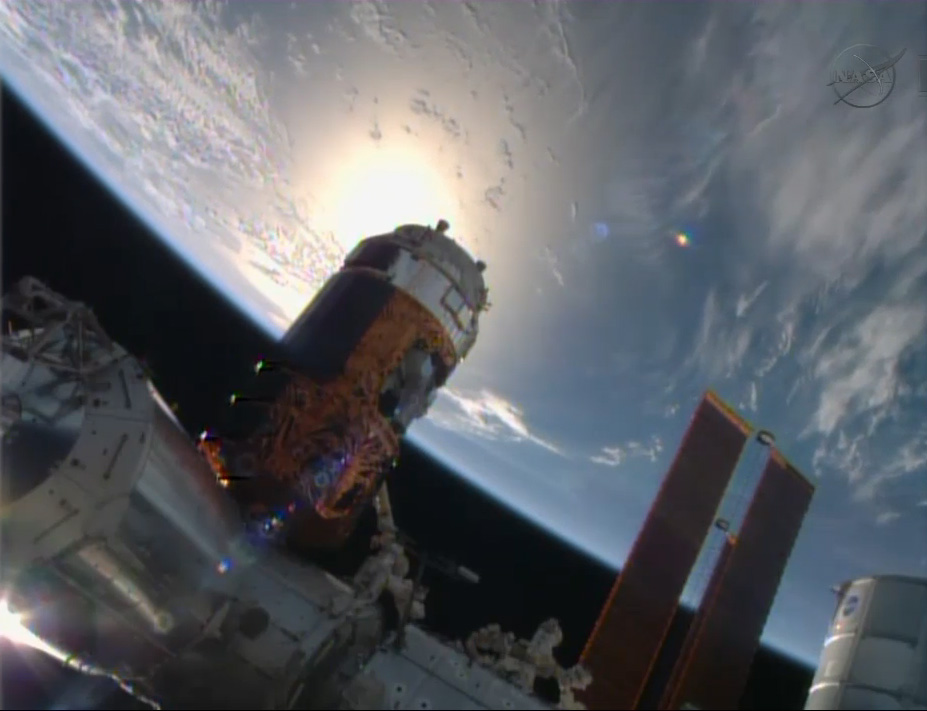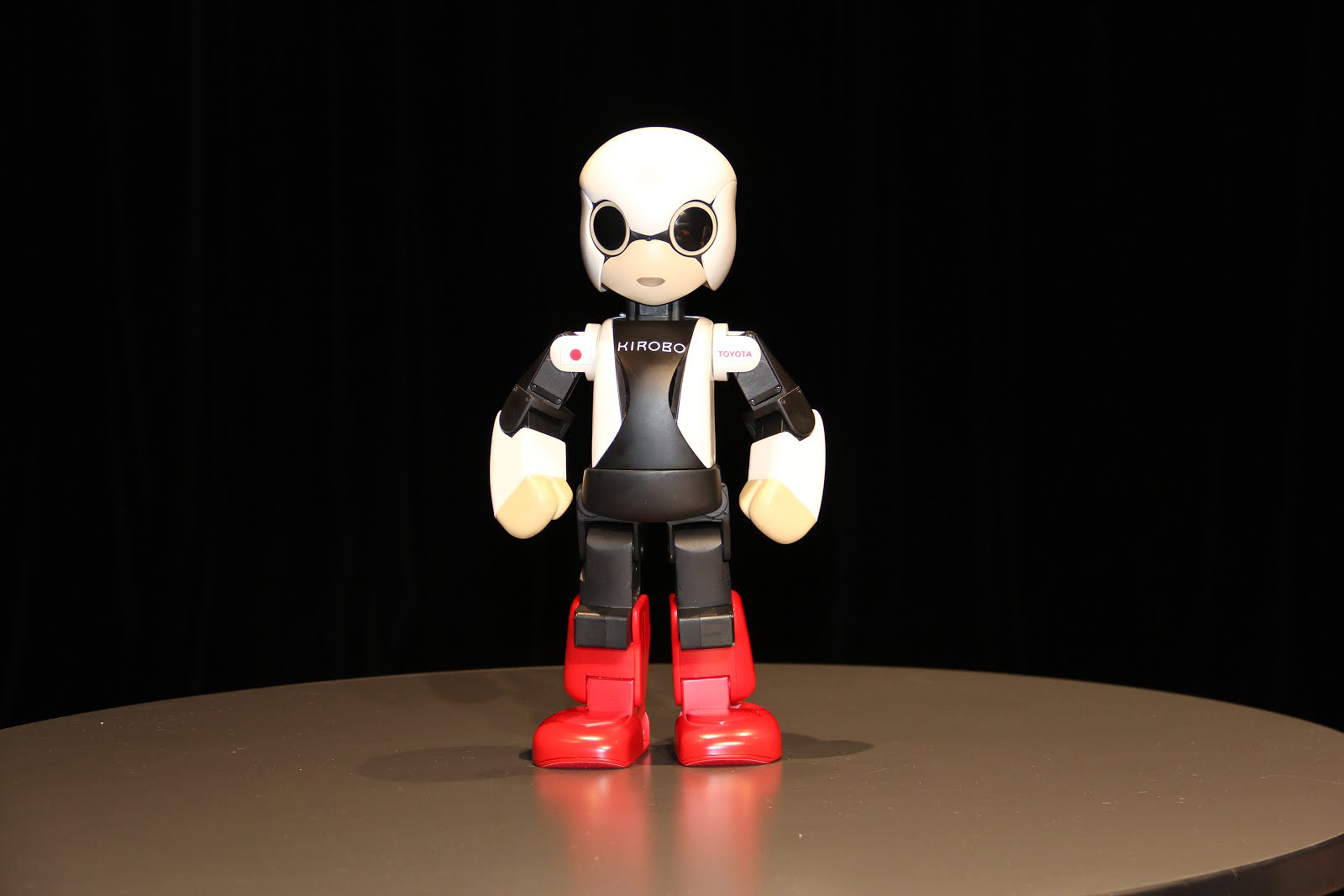Japanese Cargo Ship Delivers Fresh Supplies to Space Station

A Japanese spacecraft — named after a white stork because of the important delivery it needed to make — safely arrived at the International Space Station Friday (Aug. 9) with a robot and several tons of supplies on board.
NASA astronaut Karen Nyberg used the station's robotic arm to nab the cargo ship HTV-4 Kounotori at 7:22 a.m. EDT (1122 GMT). The capture took place as the orbiting complex flew 260 miles (418 kilometers) over waters just south of South Africa.
The Expedition 36 crew then berthed the ship to the station's Harmony node at 11:38 a.m. EDT (1538 GMT).
Onboard Kounotori was a talking robotic astronaut, Kirobo, who will be a companion to veteran Japanese astronaut Koichi Wakata when he arrives at station in November or December.
"I want to help create a world where humans and robots can live together," Kirobo said when Toyota Motor Corp., a partner in the project, asked the robot what its dream is. The robot is expected to speak on station for the first time in August or September.
One of Kirobo's long-term aims is to help monitor the mental health of astronauts during grueling long-duration space missions. Time on the space station — although rewarding professionally — is sometimes tough on astronauts personally because they are living in an isolated, dangerous environment far from friends and family.
On Saturday, the crew began unloading the 3.6 tons of cargo on the spacecraft. This included fresh food, water and supplies for the humans on station, as well as several components to keep the orbiting outpost's electrical system functioning.
Breaking space news, the latest updates on rocket launches, skywatching events and more!
Also on board were several research experiments, a new freezer that can keep samples at temperatures below -90 degrees Fahrenheit (-68 degrees Celsius), four CubeSat satellites and hardware for the station to run more robotic refueling demonstration tests to investigate the feasibility of servicing satellites in orbit.
Follow Elizabeth Howell @howellspace, or SPACE.com @Spacedotcom. We're also on Facebook and Google+. Original article on SPACE.com.

Elizabeth Howell (she/her), Ph.D., was a staff writer in the spaceflight channel between 2022 and 2024 specializing in Canadian space news. She was contributing writer for Space.com for 10 years from 2012 to 2024. Elizabeth's reporting includes multiple exclusives with the White House, leading world coverage about a lost-and-found space tomato on the International Space Station, witnessing five human spaceflight launches on two continents, flying parabolic, working inside a spacesuit, and participating in a simulated Mars mission. Her latest book, "Why Am I Taller?" (ECW Press, 2022) is co-written with astronaut Dave Williams.

